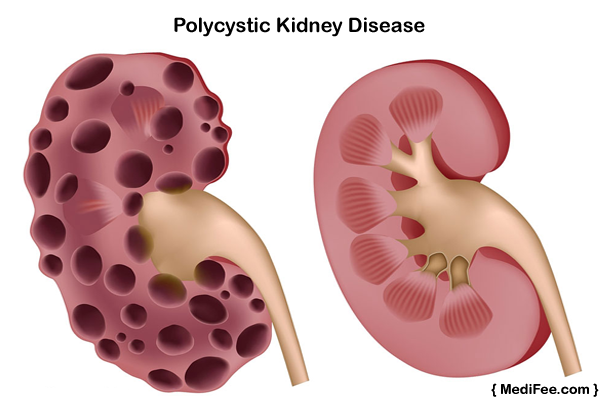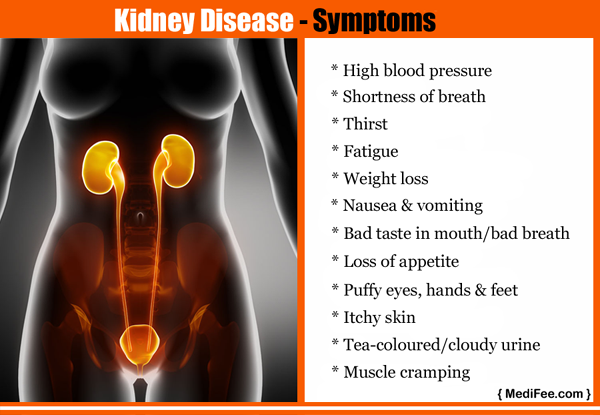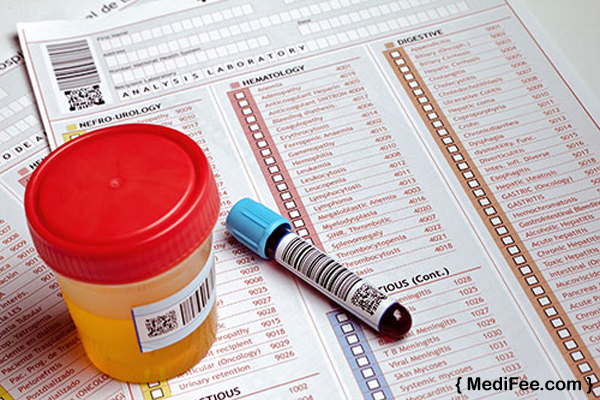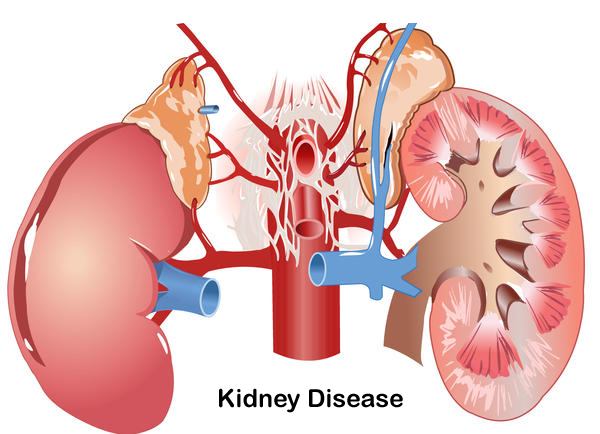Renal or kidney failure is a serious and fatal disease. A report by the Times of India in 2013 stated that about 17 per cent of urban Indians suffer from kidney disease. To understand this illness better, this blog post will take a look at some of the most common causes of kidney failure and educate you about the best ways to diagnose and treat the disease. 
Overview of kidney disease:
Kidneys are purifiers of our body. They clean your blood off impurities and allow fresh healthy blood to flow. They also remove waste matter from your body, keeping toxicity at bay. Another important function of the two kidneys that are located in the abdominal cavity is to maintain the balance of minerals and salts in the body system. They also produce vitamin D which is responsible for bone strength.
What symptoms should you pay attention to?

It can be inferred that if kidneys are not performing well, the toxic elements in your body build up. Since there is excess fluid, watch out for any changes in urination, difficulty in passing urine, swelling of ankles, extreme fatigue, skin itching and rashes, foul taste in your mouth, nausea and vomiting.
Some patients may also experience shortness of breath, dizziness and limb pain. If you find these symptoms, then immediately getting a kidney test done is recommended.
Chronic Kidney Disease (CKD) is a worrisome condition. If you’ve had kidney damage that has lasted for more than three months, then you may be susceptible for CKD. During this period, your kidneys slowly start failing and are unable to perform their functions.
CKD may occur due to the prolonged presence of diabetes and also if you suffer from high blood pressure. Apart from CKD, a kidney disease may also include cases of kidney cancer, kidney infection – where a bacteria may infect one or both the kidneys, the painful and dreaded kidney stones – where a mineral block is formed that disallows the passage of urine, renal cyst – where a benign space is created in the kidney.
Testing your kidneys:

A screen test is highly recommended because when the kidneys stop functioning or begin to fail, this can lead to further severe damage. Apart from annual kidney screenings, here are some of the diagnostic tests that doctors recommend:
-
Kidney biopsy:
A tiny piece(tissue) of kidney is removed. This tissue is then examined under a microscope for infections, tumors and anomalies.
-
Kidney Ultrasound:
Ultrasound waves are passed onto the kidney that create an image of the organ. It can detect blockages, cysts and kidney stones.
-
Urinalysis:
Urine is collected and passed through a machine that can detect infections, bleeding and kidney damage.
-
CT and MRI:
These scans are used to get a more comprehensive picture about what’s wrong with the organ.
-
Blood culture:
Blood cultures are useful for testing purity of your blood. The study from these tests gives an idea about the functioning of kidneys.
-
Ureteroscopy:
A tube is passed into the bladder for this procedure. A camera is attached to its end that helps doctors get a clearer picture of what is affecting the kidney.
What are the available treatments for kidney disease?
Although kidney failure and renal disease is getting more common in urban population because of unhealthy diet, lack of exercise, the wide range of kidney treatments available today is comforting. Simply put, these treatments provide a way to cleanse the blood and pass urine. 
In early stages of this disease, patients are treated with antibiotics. With the help of medication, kidney stones are made to pass through urine, which is a painful procedure, but proves effective. In cases where the stones are larger, they are broken down to smaller pieces by an ultrasound machine.
In cases where the functioning of the kidneys has stopped, a nephrectomy is performed where the kidney is surgically removed. In other chronic kidney cases, dialysis is recommended. This is a tedious procedure, and if you need it then you can be sure it will become a regular part of your hospital visits. A dialysis machine physically filters out blood and passes it back into your system. Most patients have to comply to life-long dialysis if their kidneys have failed. In many cases then, a patient has to continue the procedure and apply for a kidney transplant.
The best option to avoid kidney diseases is to ensure that you visit your doctor periodically for check up. It is always better to know about any disease before it becomes worse. So never skip doctor visits and stay healthy.
I have had chronic pylenephritis for a cpl of years now along with bladder not emptying fully constant pain in the areas of the kidneys. Shouldnt the dr.s be testing me on a regular basis as this would make me more prone to kidney failure?
I am applying for check up.